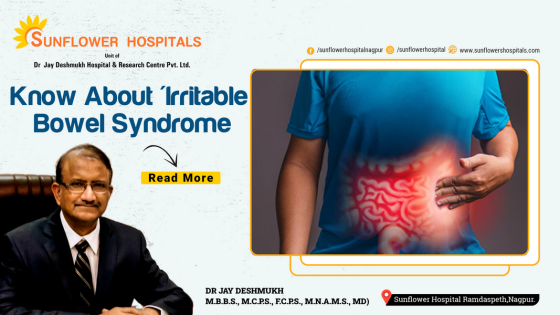What are the causes of irritable bowel syndrome?
Despite intensive research, the causes are not clearly defined. One theory suggests that IBS is caused by abnormal contractions of the colon and intestine. Vigorous contractions of the colon and intestines can cause severe cramps. This explains the use of antispasmodic medications and fibre. It is not clear whether the contractions are a symptom or cause of the disorder. Some individuals get IBS after bacterial infections like Salmonella or Campylobacter
Do stress or anxiety cause IBS?
Stress and anxiety are known to affect the intestines. Thus it is likely that anxiety and stress worsen symptoms. However, stress and anxiety are probably not the underlying cause.
Food intolerance and irritable bowel syndrome?
Food intolerance is common in patients with IBS. This theory is difficult to prove, although it is an ongoing research. The best way to diagnose this association is to eliminate certain suspected foods and see the results. Dairy products that contain lactose, legumes such as beans, and vegetables like cabbage, cauliflower and broccoli can increase intestinal gas, which can cause cramps. Some believe that there is increased sensitivity of the intestines and the visceral term is visceral hyperalgesic. Nerves in the bowel are hyperactive and gas movement is excessive and painful. Some feel better with medicines that calm down the nerves and decrease pain perception in the intestines.
What are the main symptoms of 4 irritable bowel syndrome?
Symptoms vary but are present for a long period of time. The most common include belly pain, cramping or bloating that is related to passing stools, changes in appearance of stools and also changes in the frequency of stools.
When to see a doctor?
Though symptoms of IBS are classic, some symptoms may be due to cancer of the colon which is a serious condition. The symptoms include weight loss, diarrhoea at night, blood in stools, iron deficiency anaemia, unexplained vomiting and pain that is not relieved by passing stools or gas.
What are the usual triggers of IBS?
Many have worsening of symptoms when they eat or drink certain kind of foods or beverages. These include wheat, dairy products, citrus fruits, beans, cabbage, milk and carbonated drinks. Stress may make symptoms worse, it does not cause them however.
What are the different types of irritable bowel syndrome?
IBS-D is diarrhoea predominant, wherein individuals have frequent loose stools. IBS-C is constipation predominant wherein individuals have hard infrequent stools. IBS-Mixed type has alternating diarrhoea and constipation. IBS-U are unclassified and do not fit into any category.
How to manage IBS?
8 Diet and lifestyle changes are the first line of therapy. A low FODMAP diet that is diet rich in fermentable oligosaccharides, disaccharides, Monosaccharides and Polyols should be avoided. Avoid dairy products, wheat, onions, garlic, beans and artificial sweeteners. One can eat rice, potatoes, lean meats, bananas and eggs. Those with IBS and constipation should have flax seeds and Psyllium. Reduce quantities of caffeine, alcohol and processed foods. Regular exercise, yoga and meditation would always help.
Author: Dr Jay Deshmukh
Dr Jay Deshmukh is Chief Physician and Director, Sunflower Hospital, Nagpur Honorary Physician to Honorable Governor of Maharashtra and PondicherryCentral. Dr Jay Deshmukh is an M.B.B.S., M.C.P.S., F.C.P.S., M.N.A.M.S., MD From Internal Medicine – Bombay and New Delhi.


